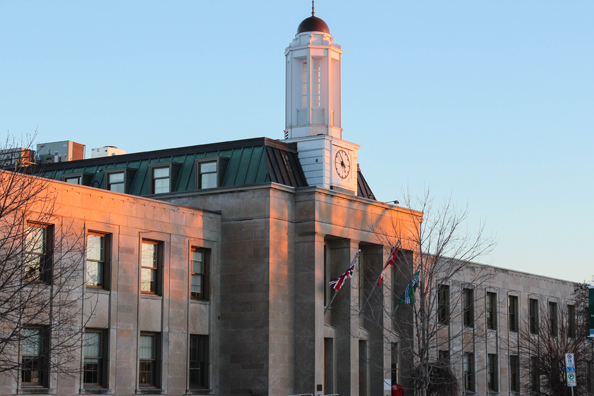
The Downtown Business Improvement Association (DBIA) has secured an additional $150 thousand out of the City of Peterborough for the next 20 years. This money will go to additional funding to hallowed events in the city such as Ribfest and Pulse, which create a sense of continuity and community in Peterborough. These events suggest a cooperative relationship between the city and the DBIA that benefits the citizens that love this city.
The events that led up to this additional funding suggest that this relationship has become more confrontational. The additional funding is part of a settlement between the City of Peterborough and the DBIA in exchange for dropping an appeal at the Ontario Municipal Board (OMB). The appeal was regarding the city’s decision to locate the casino at 1400 Crawford Drive instead of in the downtown core.
The OMB has the power to overturn municipal decisions because cities are known as “creatures of the province”. In practice, this means that cities technically do not have any jurisdiction that is solely under their authority. So all duties that are afforded to the city are given to them by the provincial government. Due to this, the OMB has immense power over cities as large as Toronto, and an appeal to the OMB results in halting the development of the Casino at Crawford Drive.
Councillor Diane Therrien described the additional funding akin to “settling out of court” with the DBIA, although she did note that settling out of court is “usually done to save money, which is not the case here”. Councillor Gary Baldwin describes it as a “payout in order to get Aeon and the DBIA to drop the appeal,” and wonders “who will we payoff next”.
Citizens also voiced their own concern at the meeting and offered critiques to the settlement. Mary Bumgartner, a concerned Peterborough resident, stated, “I don’t agree that the DBIA needs $150 thousand in extra protection.” She believed that the majority of the loss of business would happen in the south end of Peterborough. “I feel that any extra protection should go to the businesses. That $150 thousand is taxpayer money that should go to protect taxpayers [in the south end].”
The settlement did get the majority of votes and was ratified in public despite being passed behind closed doors on February 13th. Councillor Andrew Beamer praised the settlement, stating that by ratifying this settlement, he was “pro-jobs, pro-community, and for reinvesting into the downtown.” He outlined the economic impact of the casino, which he stated will bring in “120 full-time jobs with benefits and… $3.2 million annually to the city in property taxes”. With this statement, Councillor Beamer expressed his support for the settlement, but focused more on how necessary it was to begin the construction of the casino, rather than spending time in the appeal process at the OMB.
Currently the DBIA receives $127 thousand annually from the city, most of which goes to cleaning up the streets. The additional $150 thousand will go to garbage removal in a different way which Councillor Lesley Parnell was happy to outline.
She stated that the money would go to “additional security downtown, which would allow police officers to monitor other wards” and “investing in cameras to capture crime on tape”. She stated further that, “we have a problem with panhandlers… this is cited as the number one reason to not go downtown; if we can get rid of the panhandlers, then we can solve this problem.” Councillor Diane Therrien, who was formerly employed by the Peterborough Poverty Reduction Network, described this Parnell’s wording as “problematic” and that removing people from the downtown did little to “address the root cause of the problem.”
This settlement allows the construction of the casino to continue, and the DBIA to increase their budget. Councillors like Gary Baldwin noted all of the “great work” that the DBIA has done in the past. Whether or not this settlement sours the relationship between the DBIA and the City of Peterborough remains to be seen. It is clear that through this settlement, the city is establishing an adversarial stance against panhandlers and visible poverty downtown, and has contracted the DBIA to engage in a different type of clean-up than it is normally accustomed to.

